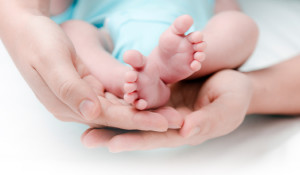
By Sarah Mac Donald - 06 February, 2018
 The leaders of the Church of Ireland and the Catholic Bishop of Limerick have spoken of their concerns about the possible introduction of unrestricted access to abortion up to 12 weeks.
The leaders of the Church of Ireland and the Catholic Bishop of Limerick have spoken of their concerns about the possible introduction of unrestricted access to abortion up to 12 weeks.
Bishop Brendan Leahy warned mass-goers in his diocese on Sunday, that repealing the eighth amendment and introducing a liberal abortion regime would result in terminations not just up to 12 weeks but in some cases right up to the point of birth.
In a letter read out at all masses across the Diocese of Limerick, he invited the faithful to “be missionaries for the cause of life”. Parishioners were told by the bishop that it was “a pivotal moment for our society and how we cherish life in this country.”
Dr Leahy also highlighted how in Britain, where abortion was introduced on the basis that it would only be in exceptional cases, today sees one in five pregnancies end in abortion.
Acknowledging that some of those hearing his words might have had an abortion or know someone who has, he said he did not wish to upset them by his words. But according to Dr Leahy, much needs to be said about the implications of repealing the eighth amendment.
All the discussions around the amendment and legislation and what way politicians are going to vote could end up desensitising people to the preciousness of the unborn baby, he suggested. Encouraging family discussions on abortion, the bishop said he appreciated that engaging in any conversation around the referendum was not easy for people.
“While I too find it difficult to talk about it, nevertheless the Gospel and my conscience convince me that I am obliged to speak,” he said. While there are “many very articulate voices” attending with empathy and care to the difficult situations of women with challenging circumstances around pregnancy, he warned that in public commentary at the moment “we are often forgetting the unborn baby.”
“And we are talking about a baby. Make no mistake about it. It is a baby,” Dr Leahy stressed.
He also noted that new technology is making it easier to “see” the humanity of a growing unborn child in a way that was never possible before and that medical centres in the US could now perform surgeries to remedy genetically abnormal unborn babies while they’re still in the womb. “It really is important for us to affirm that what’s in the womb are babies that are just not born yet. They are not potential persons but persons with potential; they are developing human,” the Bishop of Limerick challenged.
Separately, the Church of Ireland Primate of All Ireland, Archbishop Richard Clarke, and the Church of Ireland Primate of Ireland, Archbishop Michael Jackson, issued a statement on Monday in which they said the tradition of the Church of Ireland “would reject any unrestricted access to abortion”.
They highlighted that instances where the life of the woman is at serious risk, have long been regarded within Church of Ireland teaching as situations where the termination of a pregnancy would be justifiable.
“For some, pregnancy after sexual crime or the medical certainty of fatal foetal abnormality might also be seen as circumstances where abortion could be considered as justified.”
They added, “In every situation, however, the church seeks to offer pastoral care sensitive to the physical, mental and spiritual wellbeing of women and families who find themselves in such difficult situations.”
Addressing the proposals announced by the Government, they said they favour a modification of the Article 40.3.3 in such a way that allows for the Oireachtas to have legislative responsibility to address termination of pregnancy, any rights of the unborn and the rights of the pregnant woman, within clearly defined boundaries and parameters.
“We recognise the dilemma faced both by legislators and by medical, nursing, and healthcare practitioners with regards to access to unrestricted abortion during the early months of pregnancy. However, unrestricted access to abortion in the first 12 weeks of pregnancy, or indeed at any stage, is not an ethical position we can accept.”
They called for the current legislation to be strengthened to ensure that the needs of pregnant women facing difficult situations can be addressed quickly and comprehensively through improved support services.
This, they said, will require significant and sustained investment in both medical and mental health services.
Concluding, the two Primates stated, “We acknowledge that too often in this debate the voice of women has not been heard. The church will seek to continue to care for and pastorally stand alongside women, and their partners and families, who face immensely difficult situations and dilemmas.”